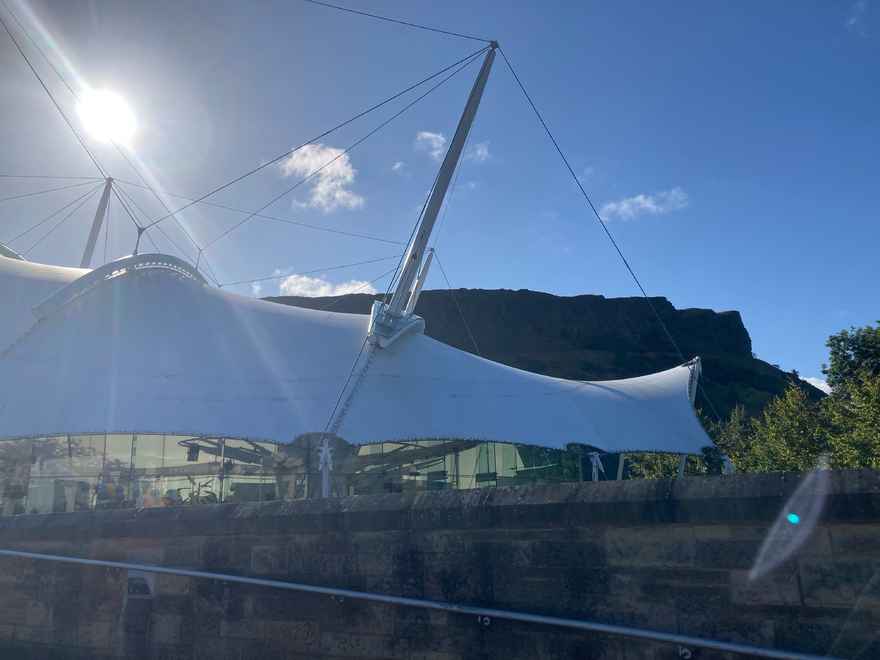Latest from Global sustainable development with Scottish International Alliance

Last week, Gaia Education had the opportunity to attend the Scottish International Development Alliance’s annual conference, held at Dynamic Earth in Edinburgh. This significant event brought together a diverse group of NGOs, global development experts, and healthcare professionals to explore collaborative strategies for creating a more equitable and sustainable world for future generations.
The conference buzzed with energy as NGOs, global development experts, and healthcare professionals converged to discuss strategies for transformation. The conference featured insightful speeches from different people across the board such as Lord Jack McConnell, the former First Minister of Scotland, and Rita from Children’s Parliament. Both speakers emphasised the crucial issue of power distribution. They posed critical questions: How can we better listen and understand the needs of local communities? How can we elect leaders who are willing to share their power more equitably?
One of the central themes of the conference was the vital need to democratise decision-making processes further even in systems already considered as 'democratic'. By involving the public more in these processes, we can work towards a more just and balanced system. However, there is often a gap between the promising parameters of policies and their practical implementation. This discrepancy highlights the challenge of translating well-intentioned policies into effective action.
A recurring topic of discussion was the apparent contradiction between governmental statements and actions. While many governments advocate for peace, substantial portions of public funds continue to support ongoing conflicts. This raises important questions about transparency in the use of taxpayer money. Can we demand greater accountability, and if so, how can we achieve this?
Nancy from the RINGO Project underscored the importance of storytelling and narrative in driving change. Stories are powerful tools that engage people, shape their perspectives, and influence their actions. Media, with its vast reach and influence, plays a pivotal role in this process. One pressing question raised was:
As political instability and far-right populism is spreading, how do we persuade people that global sustainable development is beneficial for everyone?

Another major focus was the Sustainable Development Goals (SDGs). Despite their continued relevance and acting as a good signpost, there was a consensus among panelists that the goals are unlikely to be fully achieved by 2030. The conversation also touched on the language used in the SDGs, which many felt reflects a global north perspective. The need for this language to be more anti-racist, feminist, and decolonized was highlighted as a crucial step toward more inclusive and effective global development. SDG goals were written in the global north and despite good efforts, this shows in the language used in creating them.
A prominent theme throughout the conference was the need for mutual and equitable partnerships in global development. True and lasting change requires grassroots engagement—listening to the communities we work with and redistributing our power in ways that promote sustainable, inclusive development. Recognising and thoughtfully redirecting the power we hold is essential for creating meaningful and equitable global progress.
In conclusion, the Scottish International Development Alliance conference highlighted both the challenges and opportunities in the quest for sustainable development. It underscored the importance of inclusive dialogue, transparent governance, and the power of storytelling in shaping a more just and equitable world. As we move forward, it is crucial to continue reflecting on these issues and striving for solutions that benefit everyone.
Share your thoughts below!


0 comments
Leave a comment